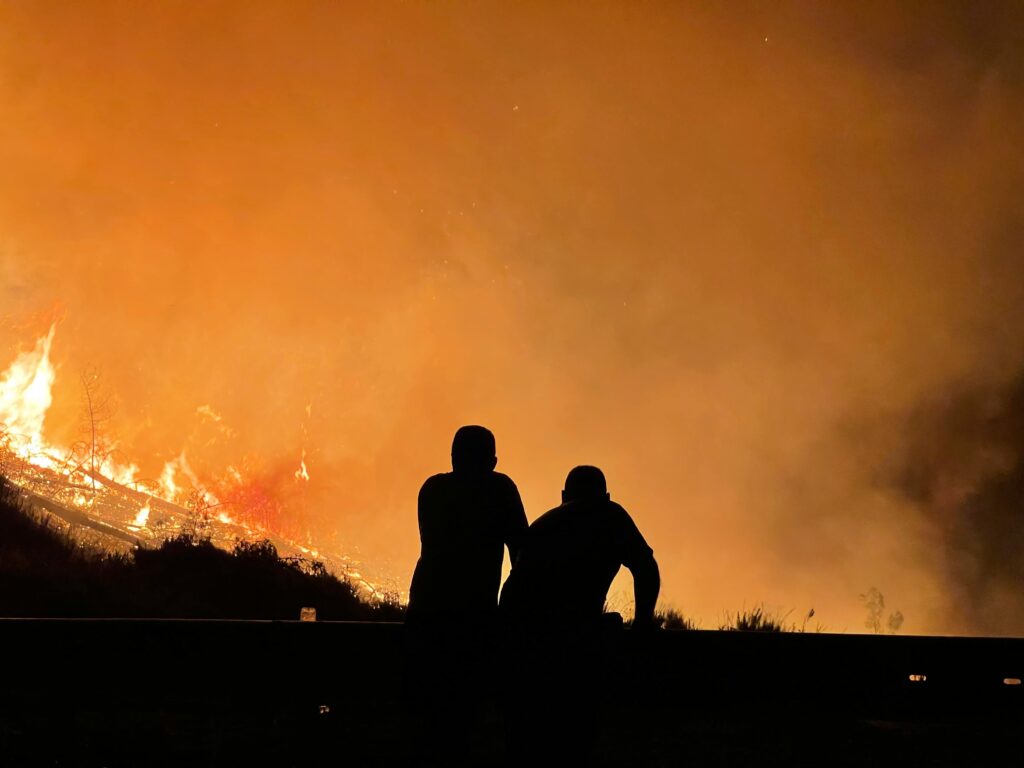Scorching temperatures heighten fire danger
Southern Europe is grappling with extreme heat and uncontrolled wildfires. In Spain, around 25% of weather stations reported temperatures exceeding 40°C, with Cádiz reaching 45.8°C on Sunday. Aemet, the national weather service, warned that while the heatwave is easing slightly, high temperatures will persist in the eastern and southern parts of the country.
Fires devastate land and endanger lives
According to preliminary Copernicus data, fires have consumed 348,000 hectares in Spain this year, surpassing the previous record set in 2022. In Portugal, 216,000 hectares have burned. Fatalities include four in Spain, including a firefighter, and two in Portugal. Over 31,000 residents in Spain have been evacuated as flames continue to spread.
Government measures and political debate
Spain has sent an additional 500 soldiers to reinforce the 1,400 troops already combating the fires. Prime Minister Pedro Sánchez called for a “state pact” to address climate emergencies outside of political disputes. The opposition People’s Party criticized the plan, demanding more personnel and accusing Sánchez of neglecting the crisis.
EU intervention and cross-border support
The severity of the wildfires has forced countries to seek help from the European Union. Portugal activated the EU civil protection system, requesting four Canadair water-bombing aircraft. Across the continent, wildfires have destroyed more than 530,000 hectares this year, more than twice the two-decade average.
Drought and ongoing hazards
Despite some cooler conditions in parts of Europe, severe drought has left vegetation highly flammable. Météo France reported high or extreme fire risk in southern regions, noting that smoke from Iberian fires and Saharan dust is affecting temperatures and air quality.
Authorities warn of unprecedented crisis
Portugal extended its wildfire alert until Tuesday night amid public criticism. In Spain, Defense Minister Margarita Robles said the fires cannot be fully controlled until the heatwave ends, highlighting the unprecedented challenges faced by the Military Emergencies Unit in its 20-year history.


